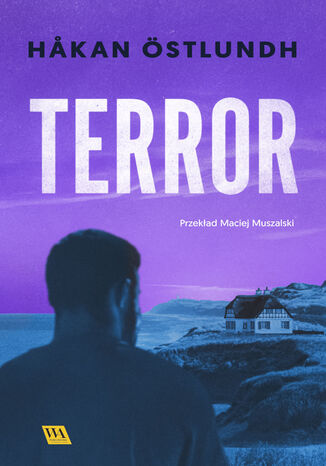Kategorie
Ebooki
-
Biznes i ekonomia
- Bitcoin
- Bizneswoman
- Coaching
- Controlling
- E-biznes
- Ekonomia
- Finanse
- Giełda i inwestycje
- Kompetencje osobiste
- Komputer w biurze
- Komunikacja i negocjacje
- Mała firma
- Marketing
- Motywacja
- Multimedialne szkolenia
- Nieruchomości
- Perswazja i NLP
- Podatki
- Polityka społeczna
- Poradniki
- Prezentacje
- Przywództwo
- Public Relation
- Raporty, analizy
- Sekret
- Social Media
- Sprzedaż
- Start-up
- Twoja kariera
- Zarządzanie
- Zarządzanie projektami
- Zasoby ludzkie (HR)
-
Dla dzieci
-
Dla młodzieży
-
Edukacja
-
Encyklopedie, słowniki
-
E-prasa
- Architektura i wnętrza
- BHP
- Biznes i Ekonomia
- Dom i ogród
- E-Biznes
- Ekonomia i finanse
- Ezoteryka
- Finanse
- Finanse osobiste
- Firma
- Fotografia
- Informatyka
- Kadry i płace
- Kobieca
- Komputery, Excel
- Księgowość
- Kultura i literatura
- Naukowe i akademickie
- Ochrona środowiska
- Opiniotwórcze
- Oświata
- Podatki
- Podróże
- Psychologia
- Religia
- Rolnictwo
- Rynek książki i prasy
- Transport i Spedycja
- Zdrowie i uroda
-
Historia
-
Informatyka
- Aplikacje biurowe
- Bazy danych
- Bioinformatyka
- Biznes IT
- CAD/CAM
- Digital Lifestyle
- DTP
- Elektronika
- Fotografia cyfrowa
- Grafika komputerowa
- Gry
- Hacking
- Hardware
- IT w ekonomii
- Pakiety naukowe
- Podręczniki szkolne
- Podstawy komputera
- Programowanie
- Programowanie mobilne
- Serwery internetowe
- Sieci komputerowe
- Start-up
- Systemy operacyjne
- Sztuczna inteligencja
- Technologia dla dzieci
- Webmasterstwo
-
Inne
-
Języki obce
-
Kultura i sztuka
-
Lektury szkolne
-
Literatura
- Antologie
- Ballada
- Biografie i autobiografie
- Dla dorosłych
- Dramat
- Dzienniki, pamiętniki, listy
- Epos, epopeja
- Esej
- Fantastyka i science-fiction
- Felietony
- Fikcja
- Humor, satyra
- Inne
- Klasyczna
- Kryminał
- Literatura faktu
- Literatura piękna
- Mity i legendy
- Nobliści
- Nowele
- Obyczajowa
- Okultyzm i magia
- Opowiadania
- Pamiętniki
- Podróże
- Poemat
- Poezja
- Polityka
- Popularnonaukowa
- Powieść
- Powieść historyczna
- Proza
- Przygodowa
- Publicystyka
- Reportaż
- Romans i literatura obyczajowa
- Sensacja
- Thriller, Horror
- Wywiady i wspomnienia
-
Nauki przyrodnicze
-
Nauki społeczne
-
Podręczniki szkolne
-
Popularnonaukowe i akademickie
- Archeologia
- Bibliotekoznawstwo
- Filmoznawstwo
- Filologia
- Filologia polska
- Filozofia
- Finanse i bankowość
- Geografia
- Gospodarka
- Handel. Gospodarka światowa
- Historia i archeologia
- Historia sztuki i architektury
- Kulturoznawstwo
- Lingwistyka
- Literaturoznawstwo
- Logistyka
- Matematyka
- Medycyna
- Nauki humanistyczne
- Pedagogika
- Pomoce naukowe
- Popularnonaukowa
- Pozostałe
- Psychologia
- Socjologia
- Teatrologia
- Teologia
- Teorie i nauki ekonomiczne
- Transport i spedycja
- Wychowanie fizyczne
- Zarządzanie i marketing
-
Poradniki
-
Poradniki do gier
-
Poradniki zawodowe i specjalistyczne
-
Prawo
- BHP
- Historia
- Kodeks drogowy. Prawo jazdy
- Nauki prawne
- Ochrona zdrowia
- Ogólne, kompendium wiedzy
- Podręczniki akademickie
- Pozostałe
- Prawo budowlane i lokalowe
- Prawo cywilne
- Prawo finansowe
- Prawo gospodarcze
- Prawo gospodarcze i handlowe
- Prawo karne
- Prawo karne. Przestępstwa karne. Kryminologia
- Prawo międzynarodowe
- Prawo międzynarodowe i zagraniczne
- Prawo ochrony zdrowia
- Prawo oświatowe
- Prawo podatkowe
- Prawo pracy i ubezpieczeń społecznych
- Prawo publiczne, konstytucyjne i administracyjne
- Prawo rodzinne i opiekuńcze
- Prawo rolne
- Prawo socjalne, prawo pracy
- Prawo Unii Europejskiej
- Przemysł
- Rolne i ochrona środowiska
- Słowniki i encyklopedie
- Zamówienia publiczne
- Zarządzanie
-
Przewodniki i podróże
- Afryka
- Albumy
- Ameryka Południowa
- Ameryka Środkowa i Północna
- Australia, Nowa Zelandia, Oceania
- Austria
- Azja
- Bałkany
- Bliski Wschód
- Bułgaria
- Chiny
- Chorwacja
- Czechy
- Dania
- Egipt
- Estonia
- Europa
- Francja
- Góry
- Grecja
- Hiszpania
- Holandia
- Islandia
- Litwa
- Łotwa
- Mapy, Plany miast, Atlasy
- Miniprzewodniki
- Niemcy
- Norwegia
- Podróże aktywne
- Polska
- Portugalia
- Pozostałe
- Przewodniki po hotelach i restauracjach
- Rosja
- Rumunia
- Słowacja
- Słowenia
- Szwajcaria
- Szwecja
- Świat
- Turcja
- Ukraina
- Węgry
- Wielka Brytania
- Włochy
-
Psychologia
- Filozofie życiowe
- Kompetencje psychospołeczne
- Komunikacja międzyludzka
- Mindfulness
- Ogólne
- Perswazja i NLP
- Psychologia akademicka
- Psychologia duszy i umysłu
- Psychologia pracy
- Relacje i związki
- Rodzicielstwo i psychologia dziecka
- Rozwiązywanie problemów
- Rozwój intelektualny
- Sekret
- Seksualność
- Uwodzenie
- Wygląd i wizerunek
- Życiowe filozofie
-
Religia
-
Sport, fitness, diety
-
Technika i mechanika
Audiobooki
-
Biznes i ekonomia
- Bitcoin
- Bizneswoman
- Coaching
- Controlling
- E-biznes
- Ekonomia
- Finanse
- Giełda i inwestycje
- Kompetencje osobiste
- Komunikacja i negocjacje
- Mała firma
- Marketing
- Motywacja
- Nieruchomości
- Perswazja i NLP
- Podatki
- Polityka społeczna
- Poradniki
- Prezentacje
- Przywództwo
- Public Relation
- Sekret
- Social Media
- Sprzedaż
- Start-up
- Twoja kariera
- Zarządzanie
- Zarządzanie projektami
- Zasoby ludzkie (HR)
-
Dla dzieci
-
Dla młodzieży
-
Edukacja
-
Encyklopedie, słowniki
-
E-prasa
-
Historia
-
Informatyka
-
Inne
-
Języki obce
-
Kultura i sztuka
-
Lektury szkolne
-
Literatura
- Antologie
- Ballada
- Biografie i autobiografie
- Dla dorosłych
- Dramat
- Dzienniki, pamiętniki, listy
- Epos, epopeja
- Esej
- Fantastyka i science-fiction
- Felietony
- Fikcja
- Humor, satyra
- Inne
- Klasyczna
- Kryminał
- Literatura faktu
- Literatura piękna
- Mity i legendy
- Nobliści
- Nowele
- Obyczajowa
- Okultyzm i magia
- Opowiadania
- Pamiętniki
- Podróże
- Poezja
- Polityka
- Popularnonaukowa
- Powieść
- Powieść historyczna
- Proza
- Przygodowa
- Publicystyka
- Reportaż
- Romans i literatura obyczajowa
- Sensacja
- Thriller, Horror
- Wywiady i wspomnienia
-
Nauki przyrodnicze
-
Nauki społeczne
-
Popularnonaukowe i akademickie
-
Poradniki
-
Poradniki zawodowe i specjalistyczne
-
Prawo
-
Przewodniki i podróże
-
Psychologia
- Filozofie życiowe
- Komunikacja międzyludzka
- Mindfulness
- Ogólne
- Perswazja i NLP
- Psychologia akademicka
- Psychologia duszy i umysłu
- Psychologia pracy
- Relacje i związki
- Rodzicielstwo i psychologia dziecka
- Rozwiązywanie problemów
- Rozwój intelektualny
- Sekret
- Seksualność
- Uwodzenie
- Wygląd i wizerunek
- Życiowe filozofie
-
Religia
-
Sport, fitness, diety
-
Technika i mechanika
Kursy video
-
Bazy danych
-
Big Data
-
Biznes, ekonomia i marketing
-
Cyberbezpieczeństwo
-
Data Science
-
DevOps
-
Dla dzieci
-
Elektronika
-
Grafika/Wideo/CAX
-
Gry
-
Microsoft Office
-
Narzędzia programistyczne
-
Programowanie
-
Rozwój osobisty
-
Sieci komputerowe
-
Systemy operacyjne
-
Testowanie oprogramowania
-
Urządzenia mobilne
-
UX/UI
-
Web development
-
Zarządzanie
Podcasty
Termodynamika techniczna. Laboratorium
Prezentowany skrypt stanowi materiał pomocniczy do zajęć laboratoryjnych z przedmiotu "Termodynamika techniczna", prowadzonego na kierunkach: mechanika i budowa maszyn oraz inżynieria gospodarki obiegu zamkniętego na Wydziale Inżynierii Mechanicznej i Informatyki Politechniki Częstochowskiej. Celem zespołu było stworzenie przystępnego opracowania, które pozwoli studentom przygotować się do ćwiczeń i nabyć umiejętności praktycznego zastosowania wiedzy ogólnej zdobytej na wykładach. Należy podkreślić, że w pracy ograniczono się wyłącznie do zagadnień zawartych w sylabusie przedmiotu, zgodnie z programami studiów dla wskazanych kierunków kształcenia. Każdy z rozdziałów zawiera: cel ćwiczenia, wprowadzenie teoretyczne, część praktyczną i wzór sprawozdania. Dodatkowo, w każdym rozdziale podano zalecaną literaturę i przykłady obliczeniowe, ułatwiające samodzielne wykonanie obliczeń wymaganych w ćwiczeniach. Na końcu podręcznika umieszczono dodatki zawierające tabele, wykresy i nomogramy niezbędne w realizacji części praktycznej omawianych zagadnień dotyczących m.in. meteorologii, klimatologii, wymiany ciepła czy urządzeń do pomiaru ciśnienia atmosferycznego i wilgotności. Tak przygotowany skrypt z pewnością ułatwi studentom przyswojenie trudnych zagadnień z elektrotechniki i elektroniki, a wskazane źródła literaturowe zachęcą ich do szerszego zainteresowania się ciekawym przedmiotem.
Termodynamika. Zbiór zagadnień i zadań z rozwiązaniami
Tekst wydania drugiego został poprawiony i przystosowany do wykorzystania przez studentów studiów inżynierskich, magisterskich i doktoranckich kierunku inżynieria mechaniczna na Wydziale Mechanicznym-Technologicznym Politechniki Warszawskiej. Autor ma nadzieję, że zaprezentowany w książce materiał może być także przydatny studentom i doktorantom innych uczelni akademickich i szkół wyższych do pogłębiania i utrwalania wiedzy z obszaru termodynamiki, w celu umożliwienia stosowania jej w tak zwanych zaawansowanych technologiach.
Mikael Krief, Mitchell Hashimoto
HashiCorp Configuration Language (HCL) has changed how we define and provision a data center infrastructure with the launch of Terraform—one of the most popular and powerful products for building Infrastructure as Code. This practical guide will show you how to leverage HashiCorp's Terraform tool to manage a complex infrastructure with ease.Starting with recipes for setting up the environment, this book will gradually guide you in configuring, provisioning, collaborating, and building a multi-environment architecture. Unlike other books, you’ll also be able to explore recipes with real-world examples to provision your Azure infrastructure with Terraform. Once you’ve covered topics such as Azure Template, Azure CLI, Terraform configuration, and Terragrunt, you’ll delve into manual and automated testing with Terraform configurations. The next set of chapters will show you how to manage a balanced and efficient infrastructure and create reusable infrastructure with Terraform modules. Finally, you’ll explore the latest DevOps trends such as continuous integration and continuous delivery (CI/CD) and zero-downtime deployments.By the end of this book, you’ll have developed the skills you need to get the most value out of Terraform and manage your infrastructure effectively.
HashiCorp Configuration Language (HCL) has changed how we define and provision data center infrastructure with the launch of Terraform, a top-tier product for building Infrastructure as Code (IaC). Terraform Cookbook shows you how to leverage Terraform to manage complex infrastructure with ease.This new edition has been updated to include real-world examples for provisioning Azure, AWS and GCP infrastructure with Terraform. You'll delve into manual and automated testing with Terraform configurations, creating and managing a balanced, efficient, and reusable infrastructure with Terraform modules. You'll learn how to automate the deployment of Terraform configuration with continuous integration and continuous delivery (CI/CD).Besides that, several new chapters have been added that describe the use of Terraform for Docker and Kubernetes, examine advanced topics on GitOps practices, and explain how to test Terraform configurations using different tools to check code and security compliance. The final chapter covers troubleshooting common Terraform issues and provides solutions for frequently encountered errors.By the end of this book, you'll have developed the skills needed to get the most value out of Terraform and to effectively manage your infrastructure.
Google Cloud has adopted Terraform as the standard Infrastructure as Code tool. This necessitates a solid understanding of Terraform for any cloud architect or engineer working on Google Cloud. Yet no specific resources are available that focus on how to use Terraform on Google Cloud.This is the first book that teaches Terraform specifically for Google Cloud. You will take a journey from the basic concepts through to deploying complex architectures using Terraform. Using extensive code examples, you will receive guidance on how to authenticate Terraform in Google Cloud. As you advance, you’ll get to grips with all the essential concepts of the Terraform language as applied to Google Cloud and deploy complete working architectures at the push of a button. Finally, you’ll also be able to improve your Terraform workflow using Google Cloud native and third-party tools.By the end of this Terraform book, you will have gained a thorough understanding of Terraform and how to use it on Google Cloud, and be able to develop effective Terraform code, build reusable code, and utilize public domain Terraform modules to deploy on Google Cloud faster and more securely.
Terraform. Krótkie wprowadzenie. Tworzenie infrastruktury za pomocą kodu. Wydanie II
Terraform jest narzędziem open source służącym do tworzenia i wdrażania kodu infrastruktury licznych platform wizualizacji i chmury, takich jak Amazon Web Services, Google Cloud, Azure, oraz zarządzania tym kodem. Migracja korporacyjnych systemów IT do chmury jest niezwykle obiecującą możliwością i wielu menedżerów wysokiego szczebla dostrzega zalety technologii chmurowych. Terraform znakomicie ułatwia wdrażanie rozwiązań opartych na chmurze, jest też narzędziem szczególnie predysponowanym do pracy zgodnej z metodyką DevOps, dzięki której współdziałanie ludzi, procesów i technologii pozwala na zapewnienie wysokiej jakości i niezawodności produktu. Ta książka jest drugim, wzbogaconym i uzupełnionym wydaniem praktycznego samouczka, dzięki któremu rozpoczęcie pracy z Terraform stanie się bardzo łatwe. Zapoznasz się z językiem programowania Terraform i zasadami tworzenia kodu. Szybko zaczniesz go wdrażać i zarządzać infrastrukturą za pomocą zaledwie kilku poleceń. Istotną częścią publikacji jest ukazanie metodologii DevOps w działaniu oraz wyjaśnienie zasad kodowania infrastruktury. Dziesiątki jasnych przykładów kodu, które można samodzielnie wypróbować w akcji, ułatwią zrozumienie podstaw. Niezależnie od tego, czy jesteś początkującym programistą, weteranem DevOps lub doświadczonym administratorem systemów, szybko przejdziesz od podstaw Terraform do przygotowania pełnego stosu, który zapewni obsługę ogromnego ruchu sieciowego i dużych zespołów programistów. W książce między innymi: wprowadzenie do Terraform wraz ze zmianami w kolejnych wydaniach tworzenie wysokiej jakości modułów Terraform testy ręczne i zautomatyzowane kodu wdrażanie klastrów serwerów, mechanizmy równoważenia obciążenia i bazy danych zarządzanie informacjami o stanie infrastruktury zaawansowana składnia Terraform Infrastruktura: koduj, wdrażaj i zarządzaj!
Terraform. Tworzenie infrastruktury za pomocą kodu. Wydanie III
Jeszcze do niedawna praca administratora systemu polegała na ręcznym przygotowywaniu infrastruktury do działania. Mozolne konfigurowanie serwerów, baz danych i elementów sieci niosło za sobą ryzyko przestojów środowiska produkcyjnego i wprowadzenia błędnych ustawień, a wdrożenia przebiegały powoli i łączyły się z nieuchronnym poszukiwaniem błędów. Dziś do tego rodzaju prac służy Terraform, narzędzie open source przeznaczone do tworzenia i wdrażania kodu infrastruktury, a także zarządzania nim; rozwiązanie stosowane w takich platformach jak Amazon Web Services, Google Cloud, Azure i wiele innych. To trzecie, wzbogacone i uzupełnione wydanie praktycznego samouczka, dzięki któremu błyskawicznie rozpoczniesz pracę z Terraform. Zapoznasz się z językiem programowania Terraform i zasadami tworzenia kodu. Szybko zaczniesz wdrażać infrastrukturę i zarządzać nią za pomocą zaledwie kilku poleceń. Istotną częścią książki jest pokazanie metodologii DevOps w działaniu, a także wyjaśnienie zasad kodowania infrastruktury. Dziesiątki jasnych przykładów kodu, które można samodzielnie wypróbować w akcji, ułatwią zrozumienie podstaw. Nie musisz być weteranem DevOps ani doświadczonym administratorem systemów - z tym podręcznikiem nawet początkujący programiści sprawnie przygotują pełny stos, który zapewni obsługę ogromnego ruchu sieciowego w rzeczywistych środowiskach produkcyjnych. Dzięki książce: zrozumiesz, kiedy używać Terraform, a kiedy innych narzędzi wdrożysz klastry serwerów, mechanizmy równoważenia obciążenia i bazy danych nauczysz się tworzyć infrastrukturę Terraform przetestujesz moduły Terraform wieloma metodami skonfigurujesz potoki CI/CD i zaczniesz się posługiwać zaawansowaną składnią Terraform nauczysz się pracować w środowiskach chmurowych Infrastruktura jako kod: od sukcesu dzieli Cię kilka poleceń!
Trzęsienie ziemi jest dla Włochów kataklizmem znacznie częstszym i i bardziej złowrogim niż powóź dla Polaków. Trzęsienia, które nawiedziły w drugiej połowie 2007 roku Umbrię, Marzece i, w mniejszym stopniu, Toskanię i Lacjum, dotknęły samego serca Włoch i Europy. Do rangi symbolu urósł widok zburzonej Nursji – ojczyzny św. Benedykta i św. Scholastyki. Zwłaszcza bazylika, po której pozostała tylko frontowa ściana. I widok ludzi modlących się na placu, klęczących jak przed widmem odchodzącego świata, zwiastunem Apokalipsy. Ale kataklizm wyzwolił również braterstwo. Nie tylko ludzi. Również ludzi i zapomnianego Boga. Ludzi i zwierząt. Ludzi i ich dziedziczonego pejzażu. Reporter-poeta wędruje do miejsc nawiedzonych przez trzęsienia ziemi. Oto Nursja – zburzone serce naszego świata. Oto ludzie, których świat się zawalił, oto ból odwiecznych pytań o sens, o przemijanie, o zło i o Boga. Kiedy miasta powstaną z ruin, a wczorajsze trzęsienia ziemi przejdą do historii, ta opowieść nadal będzie żyła nie jako „stop-klatka” chwili, ale krwawiąca rana – jako to, co wieczne jest w człowieku – ks. Adam Boniecki
Na malowniczej Gotlandii ponownie dochodzi do makabrycznych wypadków. Zaledwie kilka dni przed świętem Midsommar w pewnym domu nad morzem zostają odnalezione ciała dwóch młodych osób z ranami postrzałowymi. Ofiary pochodzą z Egiptu, wiele wskazuje zatem na zabójstwo z pobudek rasistowskich. Jednak sprawa wkrótce się komplikuje - okazuje się, że w posiadłości była jeszcze trzecia osoba, najprawdopodobniej mężczyzna. Gdzie teraz jest? Dlaczego nie daje znaku życia? Czy morderca zastrzelił niewłaściwych ludzi? Policjantów z Visby czeka trudne i wymagające śledztwo, a Fredrik Broman ma również inne sprawy na głowie. Żona wyrzuciła go z domu, w konsekwencji życie prywatne mężczyzny rozpada się na kawałki. Na domiar złego zabójstwo Egipcjan to zaledwie początek serii dziwnych i brutalnych zdarzeń, które wstrząsną całym krajem. "Terror" to trzecia część serii z Fredrikiem Bromanem w roli głównej. HAkan Ostlundh po raz kolejny udowadnia, ze jest mistrzem w kreowaniu zaskakującej i pełnej suspensu intrygi.
Terror Keep is a 1927 Edgar Wallace thriller featuring perhaps the most memorable of all Wallaces heroes, Mr. J. G. Reeder. Reeder is at pains to point out that he is not a detective, which is technically true. He is not a policeman, and has no power to arrest suspects. He works as an investigator of banking crime, particularly forgery. He is nonetheless the terror of the criminal classes. This time detective and his attractive secretary, Margaret Belman, almost suffered the wrath of John Flack, an unusual villain who pairs maniacal insanity with genius. Detective and criminal are well matched and the reader is kept in the dark about the outcome of this deadly duel for a long time. Terror Keep is an exceptionally effective and thoroughly entertaining thriller.
Terror we Francji. Geneza francuskiego dżihadu
„Chociaż zjawisko trzeciej fazy dżihadu dotyka całą Europę, we Francji jego przejawy są jednak najgłębsze i najbardziej radykalne, od „założycielskiego aktu terrorystycznego”, którym była masakra dzieci ze szkoły żydowskiej w Tuluzie i ich nauczycieli, dokonana przez francuskiego Algierczyka Mohameda Meraha 19 marca 2012 roku – pięćdziesiąt lat po podpisaniu rozejmu w algierskiej wojnie o niepodległość. Od tego czasu doszło do innych aktów terroru: zabójstwa w styczniu 2015 roku dokonanego w siedzibie tygodnika „Charlie Hebdo” i supermarkecie Kasher, aktu terroryzmu w listopadzie 2015 roku na Stadion Francji i w Bataclan, zabicie białą bronią policjanta i jego towarzyszki w ich domu w czerwcu 2016 roku. Świadczą one o tym, że szczególnym celem dżihadystów jest Francja. Badanie czynników politycznych i społecznych, kulturowych, psychologicznych i religijnych jest ważne nie tylko ze względu na wyzwanie, wobec którego w sposób niezwykle ostry stanęła współczesna Francja w wojnie z dżihadyzmem. To także propozycja wzorca interpretacji mającego wartość ogólną, a służącego przemyśleniu kryzysu cywilizacji, który w naszym wieku wybuchł głośno i brutalnie”. Z Przedmowy do polskiego wydania „Francja i ci, którzy idą jej drogą, muszą wiedzieć, że są głównymi celami Państwa Islamskiego i nadal będą czuć odór śmierci za to, że stanęli na czele krucjaty, za to, że ośmielili się obrażać naszego proroka, przechwalali się zniszczeniem islamu we Francji i uderzali w muzułmanów na ziemi Kalifatu ze swoich samolotów, które w niczym im się nie przysłużyły na cuchnących ulicach Paryża. Ten atak to dopiero początek burzy i ostrzeżenie dla tych, którzy chcą się zastanowić i wyciągnąć lekcję”. Komunikat o błogosławionym ataku na Paryż przeciwko Francji krzyżowców, zamieszczony w sieci 15 listopada 2015 r.
Terroryści też ludzie! A bankier to też człowiek
Terroryści - też ludzie! Cykl opowiadań satyrycznych, ukazujących w krzywym zwierciadle dole oraz niedole Europy w epoce "multi-kulti", poprawności politycznej i "gender". Głównym bohaterem jest bogaty polski bankier, obracający się w kręgach celebrytów dużego kalibru. Znają go i cenią bywalcy salonów Brukseli, Berlina, Moskwy, Pekinu.... i nie tylko! Jego pieniądze kochają wszyscy - partyjni i bezpartyjni, wierzący i niewierzący; bardzo starzy - i bardzo młodzi. Bohater naszych czasów!
TERRORYŚCI W SIECI Media społecznościowe w służbie propagandy ISIS
Jedną z istotnych cech współczesnego terroryzmu jest aktywne wykorzystanie nowoczesnych technologii informacyjnych do prowadzenia działań o charakterze propagandowym i dezinformacyjnym. Dotyczy to przede wszystkim mediów społecznościowych, które umożliwiają organizacjom terrorystycznym docieranie do odbiorców na masową skalę, przy czym krąg odbiorców obejmuje zarówno potencjalnych zwolenników i sympatyków, członków organizacji, jak też społeczeństw demokratycznych. Dlatego też podjęta w publikacji problematyka zasługuje na szczególną uwagę. Dr hab. Tomasz Aleksandrowicz Niesłychany rozwój technologiczny w obszarze komunikacji, jaki się dokonał w ciągu ostatnich dwóch - trzech dekad, z jednej strony został skonsumowany w obszarach rozwoju ekonomicznego, społecznego, bezpieczeństwa, a z drugiej strony stał się potężną bronią w rękach terrorystów. Docenili oni bowiem korzyści, jakie płyną z możliwości dotarcia do umysłów milionów ludzi na całym świecie, wykorzystując najnowsze zdobycze komunikacji elektronicznej w swojej działalności propagandowej. Niewątpliwie tzw. Państwo Islamskie stało się niesławnym liderem w posługiwaniu się narzędziem w aktywności propagandowej. Przeprowadzenie badań naukowych w tym obszarze należy postrzegać pozytywnie. Prof. dr hab. Kuba Jałoszyński
Terroryzm i zamachy samobójcze. Muzułmański punkt widzenia
Książka prezentuje muzułmański punkt widzenia na terroryzm i zamachy samobójcze. Warto jednak zaznaczyć, że autorami są Tureccy intelektualiści należący do środowisk skupionych wokół Fethullaha Gulena.
Terytorialne uwarunkowania rozwoju przedsiębiorstw. Terytorium - kapitał społeczny - governance
Przyjęcie terytorialnego paradygmatu rozwoju za podstawę analiz procesów rozwojowych stawia w nowym świetle pytanie o współczesne uwarunkowania dla funkcjonowania i rozwoju przedsiębiorstw. Terytorium w jego nowym rozumieniu to specyficzna konstrukcja społeczna, oparta na relacjach pomiędzy aktorami lokalnymi. Relacje te, będące wynikiem wspólnych doświadczeń, wartości i zaufania, przyczyniają się do budowania przestrzeni społeczno-gospodarczej, w której wszyscy zainteresowani uczestniczą w tworzeniu i wdrażaniu polityk rozwoju. Niniejsza publikacja w sposób szczególny koncentruje się na roli, jaką w tym kontekście pełni kapitał społeczny, oraz na współczesnych metodach sterowania procesem rozwoju terytorium (governance). Publikacja adresowana jest do środowisk akademickich zainteresowanych problematyką dotyczącą terytorium, jego istoty, specyfiki, czynników mających wpływ na jego tworzenie i roli, jaką odgrywają czynniki terytorialne w rozwoju przedsiębiorstw. Odbiorcami książki mogą być także instytucje odpowiedzialne za kształtowanie i wdrażanie polityk rozwojowych, w realizację których mogłyby w większym stopniu być zaangażowane podmioty regionalne i lokalne.
Terytorium i współczesne dylematy jego rozwoju
Celem książki jest uporządkowanie i analiza współczesnych koncepcji rozwoju terytorialnego, czynników, które decydują o dynamice tego rozwoju oraz pokazanie sposobów ich włączania się w szybki i skomplikowany proces globalizacji. Innymi słowy chodzi o pytania, co warunkuje fakt, że pewne regiony rozwijają się i są regionami „wygrywającymi”, a inne, mimo pozornie sprzyjających okoliczności, nie mogą wyjść z kryzysu. Odpowiedzi na tak postawione pytania szukano przede wszystkim w teorii, analizując składowe procesu konstrukcji terytorium. W centrum uwagi znalazły się mechanizmy i sposoby rozwoju lokalnego jako metody rozwoju regionalnego, co w konsekwencji prowadziło do analizy dwóch zbiorów – terytorium i przedsiębiorstw oraz warunków, w których rozwój jednego przyczynia się jednocześnie do rozwoju drugiego. Wzajemne przenikanie się tych zbiorów znajduje wyraz w różnych strategiach i przestrzennych formach organizacji
















